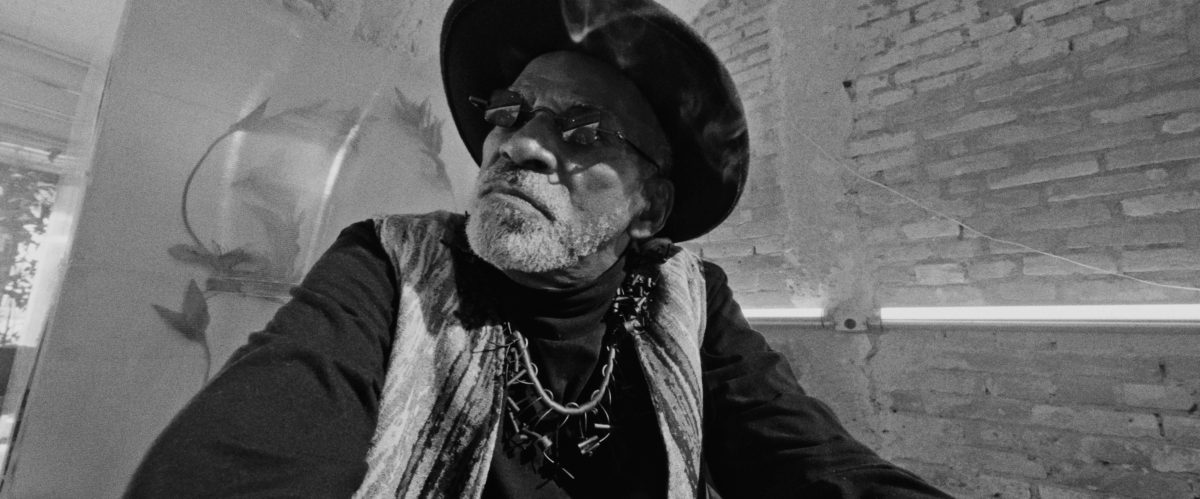Anansi is chilling on a hammock in the Cat Zone. Photo credit: Geri Koeppel
This profile of Cat Town Oakland kicks off our Nonprofit of the Month series where we focus on smaller Bay Area nonprofits. If you’d like to nominate an organization to be featured, please email [email protected]
You’ve probably seen those TV commercials or clips on Facebook showing the sad-sack dog in the shelter who gets adopted and is immediately transformed into the perfect pet, happily riding in the car and chasing balls and looking ecstatically grateful for his new “forever family.”
That’s adorable, but it’s not reality for many animals in shelters—particularly cats. Cats torn from their environment and placed into cages with all kinds of unfamiliar smells and sounds and other animals often shut down and become fearful, withdrawn or aggressive. Even though they may have been a perfectly socialized pet for years, which many are, they get deemed “un-adoptable” and put down.
Enter Cat Town, founded in 2011 by Ann Dunn, a former shelter volunteer. “Our mission is helping animals that would otherwise be euthanized from Oakland Animal Services,” she said. “When I started Cat Town, 42 percent of the cats at the shelter were being killed.”
Cat Town, which serves about 100 cats at any given time, has rescued roughly 2,340 cats so far and reduced the euthanasia rate at Oakland Animal Services by over 70 percent. It has a staff of five full-time and five part-time employees and about 175 volunteers.
Ann Dunn, founder and executive director of Cat Town. Photo credit: Geri Koeppel.
The group started by placing cats in understanding foster homes, but now has space for about 40 cats at its colorful headquarters at 2869 Broadway in Oakland. Adoption fees are $75 for one or $100 for two, and part of its mission is keeping bonded cats together.
One room, the Cat Zone, houses the “Forgotten Kitten Project,” which allows kittens from four to eight months old to roam, play and interact with people. It’s easy to socialize cats at five to seven weeks, Dunn said, but “at eight weeks, that window begins to close.” Putting them in a safe environment with confident role models helps cats trust people and get ready to find homes. “It’s an amazing transformation that we see,” she said.
In “The Studios,” adult cats are housed in various sizes and shapes of rooms with windows and sliding doors. Fearful cats need a smaller space so they’re not overwhelmed, while aggressive ones need more room to roam and expend energy. Though Dunn said she’s learned much by observation, the group works with cat behaviorists as well.
In the Cat Zone at Cat Town. Photo credit: Scott Russell
Cats surrendered from a home are the most likely to react badly to their new environment and be aggressive and scared. They often come in because their owner has died, is incapacitated or lost their housing, Dunn said: “It is a heartbreaking situation.” She added, “The perception is that certain cats are too difficult and not adoptable. They’re highly adoptable; you just have to go about it in the right way. Once they’re in a place where they can thrive, a potential adopter gets to see them at their best.”
Jill Erbland of Oakland adopted a cat, Leo, from Cat Town, and said although she grew up around cats, it was “an educational experience” for her. “Every cat has their own process when they’re trying to de-stress,” she said. “It took almost a month before I could pet him. I started gradually moving his food out into the living room. He’d eat his food and watch me and then scurry back into the bedroom.” One night, he decided “this lady is all right and I’ll let her pet me,” she said.
Erbland has been a volunteer now with Cat Town since 2014 greeting guests, talking with people about the mission and helping facilitate adoptions. “Having had the experience of having a couple of these types of cats in my home, it’s easy for me to help people understand,” she said. “If this isn’t right for you, we completely understand. Our goal is to find the right cat for the individual or the family.”
How cute is Leo???
More than 10,000 people each year visit Cat Town, not necessarily to adopt but to interact with the cats, which often only get 15 minutes a day outside of a cage in a shelter. You can make a reservation to spend an hour cuddling and helping socialize the cats for $10 an hour per person. (There’s no fee for adoption appointments.) Human and cat treats are sold at the adjacent RAWR Coffee Bar.
“Why do they have to be in a cage while they’re waiting for a home?” Dunn asked. “Why not allow them to be out experiencing joy?” It’s also better for humans, she said: “A lot of times, people don’t go to shelters because they’re afraid they’ll be depressing. We want people to feel good being here.”
In addition, no other organization goes into shelters and gives these cats a second chance, but hopefully that will change. Thanks to a grant from Maddie’s Fund, rescue organizations from around the country come in to learn what Cat Town does and how they do it.
“When I first started Cat Town, my goal was not just to save cats in Oakland, but to show these cats can be adoptable, and we’ve become a national model for that,” Dunn said.
Cats get much more interaction at Cat Town than in a shelter. Photo credit: Cathy Niland
A few important plugs:
— Cat Town is hosting its second annual Second Chance Soiree from 6 to 9:30 p.m. Oct. 5 at Oakland’s Historic Preservation Park. It includes wine, beer, food, music, a silent auction and more. Tickets start at $108 and are available through the Cat Town site.
— Calling all artists: Cat Town has announced its first T-shirt design contest. Entries are due by Aug. 25 and the winner will get two tickets to the Second Chance Soiree, 10 passes to Cat Town, an article profiling the artist on the Cat Town blog and much more.
— Worried about what could happen to your kitty if something happens to you? Cat Town’s new Legacy of Love program will ensure your cat will be cared for. They ask that you give $50 a month and include the nonprofit in your will or bequest. Email Ann Dunn for more details.
The post Cat Town: The No-Kill Rescue Group Saving Thousands of Kitties appeared first on Broke-Ass Stuart's Website.






